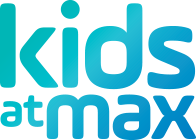
Have you ever wondered:
“Is my child too active?”
“Do they have ADHD?”
“My child can’t pay attention, but they are not hyperactive!”
It is important to understand that some children may be diagnosed with ADHD even though they do not seem to be hyperactive. That is because under the ADHD diagnosis, there is a secondary specification of whether a child has either combined presentation (both inattention and hyperactivity-impulsivity), predominantly inattentive presentation or predominantly hyperactive/impulsive presentation.
What is ADHD?
To have a proven diagnosis of ADHD, a child behavioural consultant will want to confirm if your child presents with persistent attention issues AND/OR hyperactive-impulsive behaviours that impact their ability to function well at school, at home and socially.
A child with attention issues can present as someone who:
- Makes careless mistakes in schoolwork or overlooks and misses details
- Has difficulty remaining focused on tasks or play activities that are not of interest (e.g. during learning activities or mealtimes)
- Their mind seems elsewhere or they seem to not be listening when spoken to directly even when there are not obvious distractions
- Fails to finish schoolwork or follow through on instructions
- Starts tasks but quickly loses interest or easily sidetracks
- Misplaces or loses things
- Has a poor understanding or estimation of time
- Avoids, dislikes or is reluctant when tasks that require mental effort (e.g. schoolwork)
- Easily distracted by extraneous stimuli such as sound or light
- Appears forgetful in daily activities
A child with hyperactive and impulsive behaviours can often present as someone who:
- Fidgets a lot including by tapping hands or feet
- Leaves seat often during classroom or mealtimes (i.e. when remaining seated is expected)
- Runs about or climbs at inappropriate times
- Is unable to play quietly
- Seems to be restless often or as if “driven by a motor”
- Talks excessively
- Blurts out answers or completes other people’s sentences
- Has difficulty waiting for his/her turn
- Interrupts conversations or intrudes into or takes over what others are doing
- Takes or uses other people’s things without receiving permission
Support and strategies are required
Many children with ADHD symptoms struggle with learning tasks and may appear to be “naughty” due to their impulsivity or inappropriate behaviours. They may also experience underlying anxiety or low self-esteem due to their difficulties and it is important that they get support as early as possible.
For further information on child psychology or to book for an ADHD assessment at our child assessment clinic in Melbourne with one of our child behavioural consultants, please contact Kids At Max on (03) 9702 447.
Written by Kids At Max Psychologist
